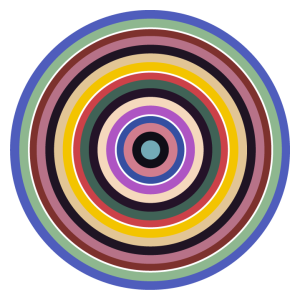“La interpretación de nuestra realidad con esquemas ajenos solo contribuye a hacernos cada vez más desconocidos, cada vez menos libres, cada vez más solitarios”.
“Pero creo que los europeos de espíritu clarificador, los que luchan también aquí por su patria, por una patria más grande y más justa, podrían ayudarnos mejor si revisaran a fondo su manera de vernos. La solidaridad con nuestros sueños no nos hará sentir menos solos, mientras no se concrete con actos de respaldo legítimo a los pueblos que asuman la ilusión de tener una vida más propia en el reparto del mundo”.
“¿Por qué la originalidad que se nos admite sin reservas en la literatura se nos niega con toda clase de suspicacias en nuestras tentativas tan difíciles de un cambio social?, ¿por qué pensar que la justicia social que los europeos de avanzada tratan de imponer en sus países no puede ser también un objetivo latinoamericano con métodos distintos en condiciones diferentes?”
Category: history
PALESTINIAN FILMS
🎞️ Jerusalem Flower of All Cities, 1969
Director: Ali Siam
Synopsis: A poignant portrayal of Palestinian civil life in Jerusalem disrupted by the Israeli army’s occupation post the 1967 Naksa, set to Fairouz’s renowned song.
🎞️ Scenes of the Occupation from Gaza, 1973
Director: Mustafa Abu Ali
Synopsis: A rare film by Mustafa Abu Ali, a pioneer of the Palestine Film Unit, providing early insights into the occupied territory in Gaza.
🎞️ The Road to Palestine, 1985
Director: Layaly Badr
Synopsis: An animated short film based on the testimony of Laila, a girl residing in a Palestinian refugee camp.
🎞️ Ambience, 2019
Director: Wisam AlJafari
Synopsis: Two young Palestinians navigate the chaos of a crowded refugee camp to creatively meet a music competition deadline.
––––––––––––
👁️ The Void Project: art project by filmmaker Azza El-Hassan that looks at the effect of the Israeli state’s abduction and destruction of Palestinian visual archive on Palestinian visual narrative.
👁️ Khazaeen: Palestinian-owned archive.
👁️ BARARI: open science platform to responsibly share knowledge about wild food plants in Palestine.
👁️ The Nakba Archive: a grassroots oral history collective to record and commemorate the experiences of Palestinian refugees in Lebanon who lived through the 1948 Nakba, ‘catastrophe.’
** Source: Teach-in with Maria Zreiq – Palestinian Cinema & Archive with Coletivo pela Libertação da Palestina
Toto, recuerda siempre a tus verdaderos ancestros, tus raíces más profundas: palestinas y precolombinas–principalmente wayúu. A aquellos a quienes pertenecieron a la tierra. No rellenes tu vida de externalidades, de lo que te dicta la globalización, el mercadeo, o las historias/imaginaciones ajenas, los sistemas de turno, el ruido… No. Cuestiona todo para viajar hacia adentro. Sé tú. Llénate siempre de ti mismo en armonía con el universo.

Despite oversimplifications such as the one around Russia’s invasion of Ukraine and statements like, “Just as colonies settled by Europeans today tend to be wealthier than colonies in which Europeans did not settle, areas settled by Javanese transmigrants in West Papua or Han Chinese settlers in Xinjiang tend to be wealthier than otherwise similar areas. GDP per capita in West Papua, for instance, is almost twice that of neighbouring Papua New Guinea, and its physical infrastructure is much better,” for which I’d really need to see data and analysis (probably available in McNamee’s book? Compared to the organic evolutions of societies that we can’t even possibly imagine now what that would’ve been like? And interpreted through the lens of modern economic theory?), “Settler colonialism,” is an antidote to blindness. It spotlights the larger question of a repeating pattern across some societies that gets overshadowed by one event or the other taking precedence over everything else (due to ideology but possibilities are endless). The article is a call for self-awareness and questioning our assumptions so that we may not only pursue truth and understanding and act on root issues, but tend to our inner garden so that new external ones may follow–“(…) we have this idea that, if you know history, it won’t repeat itself. But the truth is, actually, that history always repeats itself until you know yourself. And we changed laws, but we didn’t change ourselves.”
